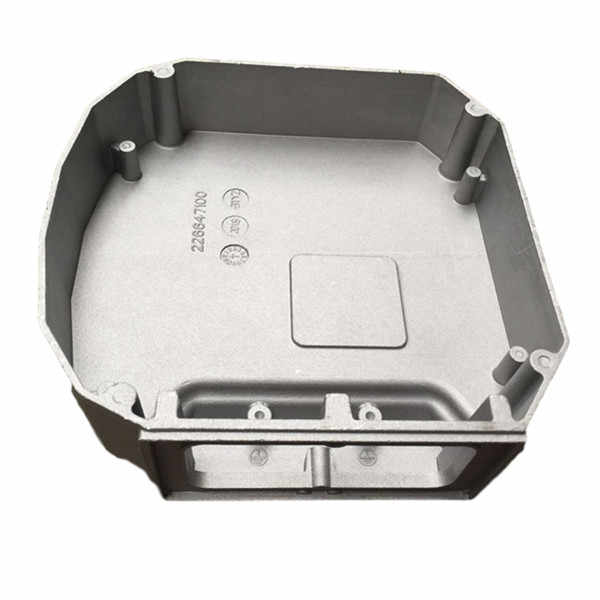How Alcast Company can Save You Time, Stress, and Money.
How Alcast Company can Save You Time, Stress, and Money.
Blog Article
Alcast Company Fundamentals Explained
Table of ContentsThe Ultimate Guide To Alcast CompanyThe Ultimate Guide To Alcast CompanyRumored Buzz on Alcast CompanyThe Best Strategy To Use For Alcast CompanyNot known Details About Alcast Company Alcast Company for Dummies
The subtle distinction hinges on the chemical material. Chemical Comparison of Cast Light weight aluminum Alloys Silicon promotes castability by lowering the alloy's melting temperature level and boosting fluidness throughout spreading. It plays a critical function in permitting detailed molds to be filled up properly. Additionally, silicon adds to the alloy's toughness and put on resistance, making it valuable in applications where resilience is vital, such as vehicle parts and engine parts.It additionally improves the machinability of the alloy, making it easier to process into completed items. In this way, iron adds to the overall workability of aluminum alloys. Copper increases electrical conductivity, making it helpful in electric applications. It likewise enhances corrosion resistance and includes to the alloy's general toughness.
Manganese contributes to the toughness of light weight aluminum alloys and enhances workability (Casting Foundry). It is frequently used in functioned aluminum products like sheets, extrusions, and accounts. The presence of manganese help in the alloy's formability and resistance to cracking throughout fabrication processes. Magnesium is a light-weight element that offers strength and impact resistance to light weight aluminum alloys.
Our Alcast Company PDFs
Zinc improves the castability of aluminum alloys and aids manage the solidification process during casting. It boosts the alloy's toughness and solidity.

The key thermal conductivity, tensile toughness, return strength, and elongation differ. Among the above alloys, A356 has the highest possible thermal conductivity, and A380 and ADC12 have the cheapest.
Getting My Alcast Company To Work

In accuracy casting, 6063 is fit for applications where elaborate geometries and high-quality surface area coatings are extremely important. Examples consist of telecommunication units, where the alloy's premium formability enables smooth and visually pleasing designs while preserving architectural stability. In the Lighting Solutions market, precision-cast 6063 parts develop elegant and effective lights fixtures that call for elaborate shapes and excellent thermal efficiency.
It brings about a better surface finish and much better rust resistance in A360. The A360 exhibits superior elongation, making it perfect for complicated and thin-walled components. In precision casting applications, A360 is fit for sectors such as Customer Electronics, Telecommunication, and Power Devices. Its improved fluidity permits detailed, high-precision parts like smart device cases and communication tool real estates.
Excitement About Alcast Company
Its distinct buildings make A360 a valuable selection for accuracy spreading in these industries, improving item sturdiness and quality. Light weight aluminum alloy 380, or A380, is an extensively used casting alloy with numerous distinctive features. It provides superb castability, making it an optimal selection for precision spreading. A380 displays excellent fluidness when molten, making sure intricate and thorough molds are accurately replicated.
In accuracy casting, aluminum 413 radiates recommended you read in the Consumer Electronics and Power Devices sectors. It's frequently utilized to craft detailed components like smartphone housings, video camera bodies, and power device casings. Its precision is remarkable, with limited tolerances approximately 0.01 mm, ensuring remarkable item assembly. This alloy's exceptional rust resistance makes it a superb option for outside applications, guaranteeing lasting, durable items in the pointed out markets.
The Best Strategy To Use For Alcast Company
The aluminum alloy you pick will substantially influence both the spreading procedure and the residential or commercial properties of the last product. Due to the fact that of this, you have to make your decision thoroughly and take an educated strategy.
Establishing one of the most ideal aluminum alloy for your application will suggest weighing a broad range of qualities. These relative alloy features adhere to the North American Pass Away Spreading Organization's standards, and we have actually divided them right into 2 classifications. The very first classification addresses alloy attributes that influence the production procedure. The second covers qualities impacting the residential or commercial properties of the final product.
A Biased View of Alcast Company
The alloy you select for die spreading directly affects a number of aspects of the spreading procedure, like how easy the alloy is to collaborate with and if it is vulnerable to casting flaws. Hot cracking, likewise recognized as solidification splitting, is a typical die spreading problem for aluminum alloys that can lead to inner or surface-level tears or fractures.
Certain aluminum alloys are extra vulnerable to warm cracking than others, and your choice needs to consider this. One more usual defect located in the die casting of light weight aluminum is die soldering, which is when the cast adheres to the die wall surfaces and makes ejection difficult. It can harm both the cast and the die, so you ought to look for alloys with high anti-soldering residential or commercial properties.
Deterioration resistance, which is currently a significant characteristic of aluminum, can differ substantially from alloy to alloy and is a vital particular to take into consideration relying on the environmental problems your item will be exposed to (aluminum casting company). Use resistance is an additional residential or commercial property frequently looked for in light weight aluminum items and can set apart some alloys
Report this page